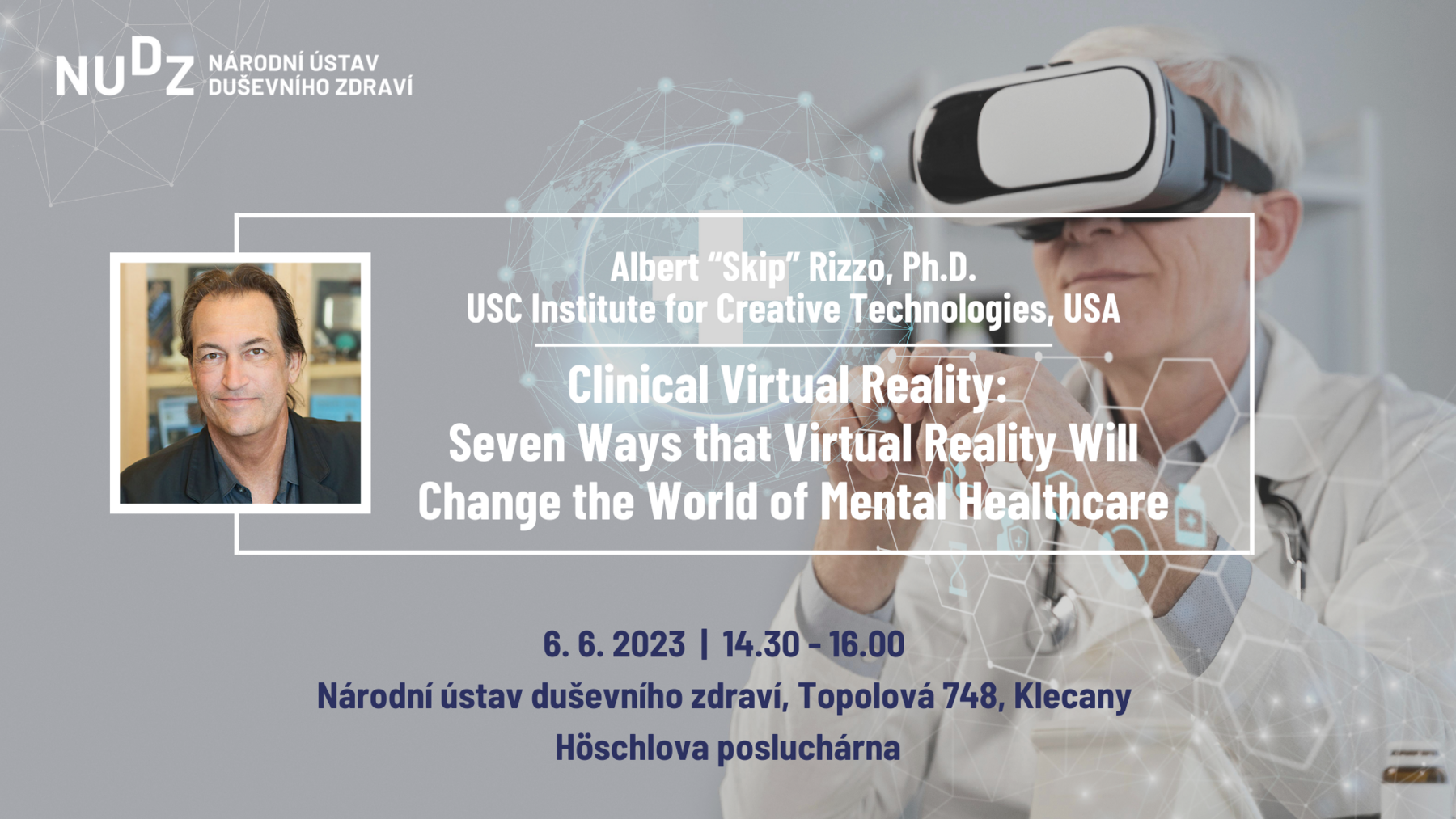SEMINÁŘ Albert “Skip” Rizzo, Ph.D.: Clinical Virtual Reality: Seven Ways that Virtual Reality Will Change the World of Mental Healthcare
Dovolujeme si Vás pozvat na seminář Alberta “Skip” Rizza, Ph.D. z USC Institute for Creative Technologies (USA). Těšíme se na Vás v úterý 6. 6. 2023 od 14.30 do 16.00 v Národním ústavu duševního zdraví v Klecanech.

Anotace:
O přednášejícím:
Dovolujeme si upozornit, že akce je určena výhradně odborné veřejnosti. Vstup zdarma. Přednáška bude vedena v angličtině.
Přednáška je podpořena z rozpočtu Referátu pro zahraniční a vnější vztahy 3. LF a MZ ČR – RVO (NUDZ, 00023752).